In a landmark move aimed at improving maternal and child healthcare in Makueni County, Jacaranda Health and ThinkWell have joined forces with the county government to launch a three-year Kenya Quality Ecosystem project.
This collaborative partnership seeks to link maternal and newborn health solutions with the available budget and establish a data-driven approach to address the challenges faced by mothers throughout their healthcare journeys.
The ultimate goal is to drive cost efficiencies in health funds, prioritize investments in innovations, and enhance delivery of quality care, thereby positively impacting health outcomes.
The project commenced with a comprehensive baseline Facility Quality Assessment and Health Financing Landscaping across 30 healthcare facilities spanning the six sub-counties of Makueni.

It underscored the need for appropriate revenue allocation towards maternal, newborn, and child health, revealing opportunities for significant improvements.
As a result of these findings, various innovative programs have been initiated to enhance service delivery. These programs include the production of Quality of Care reports, optimization of health financing initiatives and continued implementation of Jacaranda Health’s free two-way SMS service, and a mentorship program designed to boost nurses’ confidence and preparedness to handle emergencies.
Deputy Governor Lucy Mulili, who led the meeting, reiterated the county government’s unwavering commitment to advancing the healthcare agenda.
She emphasized the importance of raising awareness about the National Hospital Insurance Fund (NHIF) program to enhance service delivery.
The partnership between ThinkWell and Jacaranda Health, which initially commenced in 2019 in Makueni County, has been marked by collaborative efforts to improve healthcare service delivery.
 The event is attended by thousands of Catholic faithfuls with Governor Mutula Kilonzo Jr hosting various top leaders among them: Stephen Kalonzo Musyoka (Wiper party leader), Cecily Mbarire (Embu Governor), wavinya Ndeti (Machakos) , Julius Malombe (Kitui), Terry Mbaika( Devolution PS), Philomena Mwilu (Deputy Chief Justice), Eugene Wamalwa, a number of Deputy Governors, MPs among others.
The event is attended by thousands of Catholic faithfuls with Governor Mutula Kilonzo Jr hosting various top leaders among them: Stephen Kalonzo Musyoka (Wiper party leader), Cecily Mbarire (Embu Governor), wavinya Ndeti (Machakos) , Julius Malombe (Kitui), Terry Mbaika( Devolution PS), Philomena Mwilu (Deputy Chief Justice), Eugene Wamalwa, a number of Deputy Governors, MPs among others.

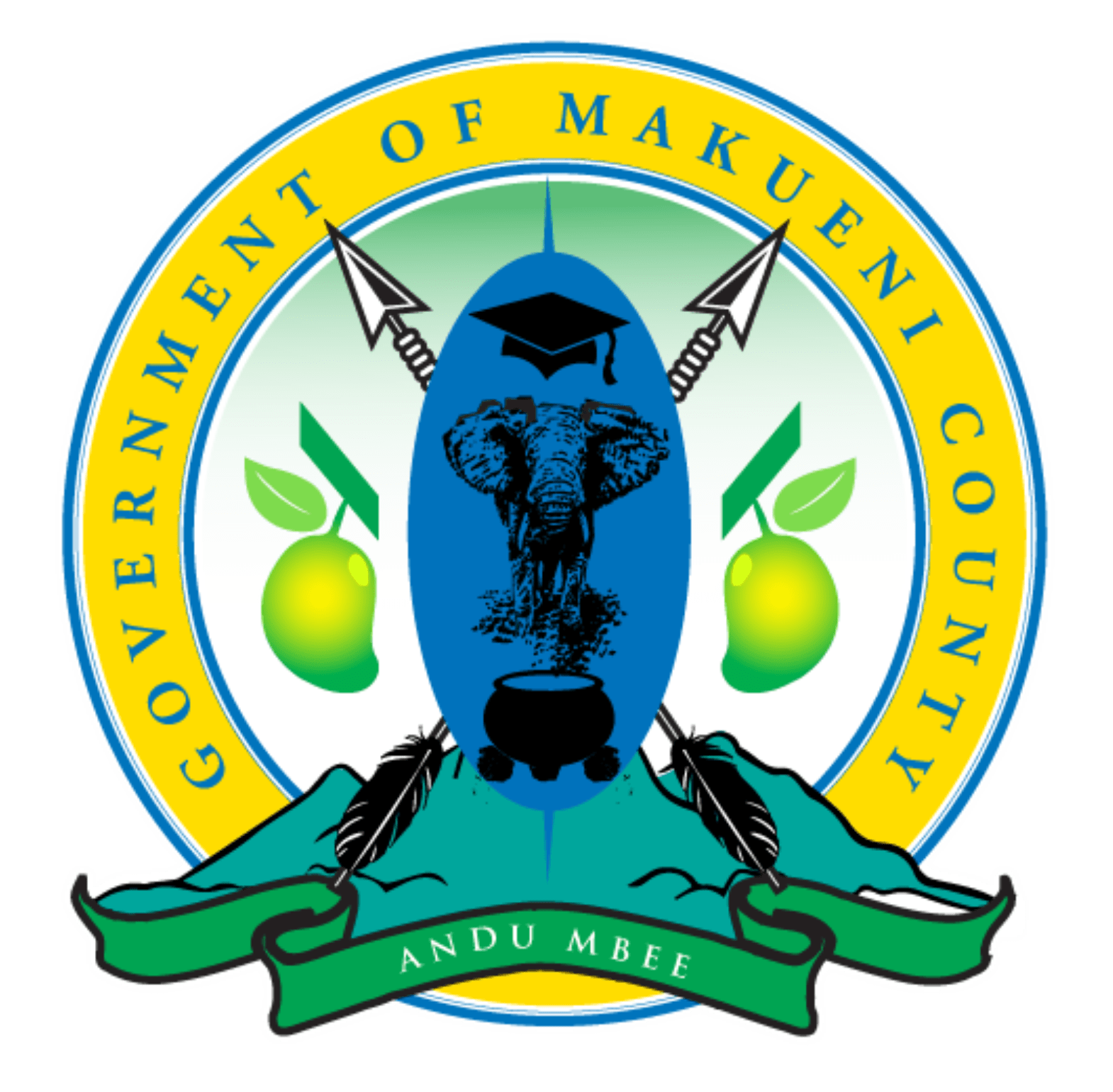


 The bishop was handed over from the Diocese of Machakos by Bishop Norman King’oo accompanied by Francis Mwangangi (Deputy Governor) to Makueni Governor Mutula Kilonzo Jr. at Kola Township which bestrides Machakos and Makueni counties.
The bishop was handed over from the Diocese of Machakos by Bishop Norman King’oo accompanied by Francis Mwangangi (Deputy Governor) to Makueni Governor Mutula Kilonzo Jr. at Kola Township which bestrides Machakos and Makueni counties. Addressing hundreds of Catholic members, Governor Mutula said history had been made adding that the new bishop stands a better chance of bringing together the greater eastern communities.
Addressing hundreds of Catholic members, Governor Mutula said history had been made adding that the new bishop stands a better chance of bringing together the greater eastern communities. Other leaders who attended the ceremony include Terry Mbaika (PS Devolution), Francis Mwangangi (Machakos Deputy Governor), Susan Kiamba (Makueni MP), Doughlas Mbilu (Makueni speaker), Andrew Mulwa (CEO KEMSA), Fred Muteti (Chair Special Economic Zones), among others.
Other leaders who attended the ceremony include Terry Mbaika (PS Devolution), Francis Mwangangi (Machakos Deputy Governor), Susan Kiamba (Makueni MP), Doughlas Mbilu (Makueni speaker), Andrew Mulwa (CEO KEMSA), Fred Muteti (Chair Special Economic Zones), among others.
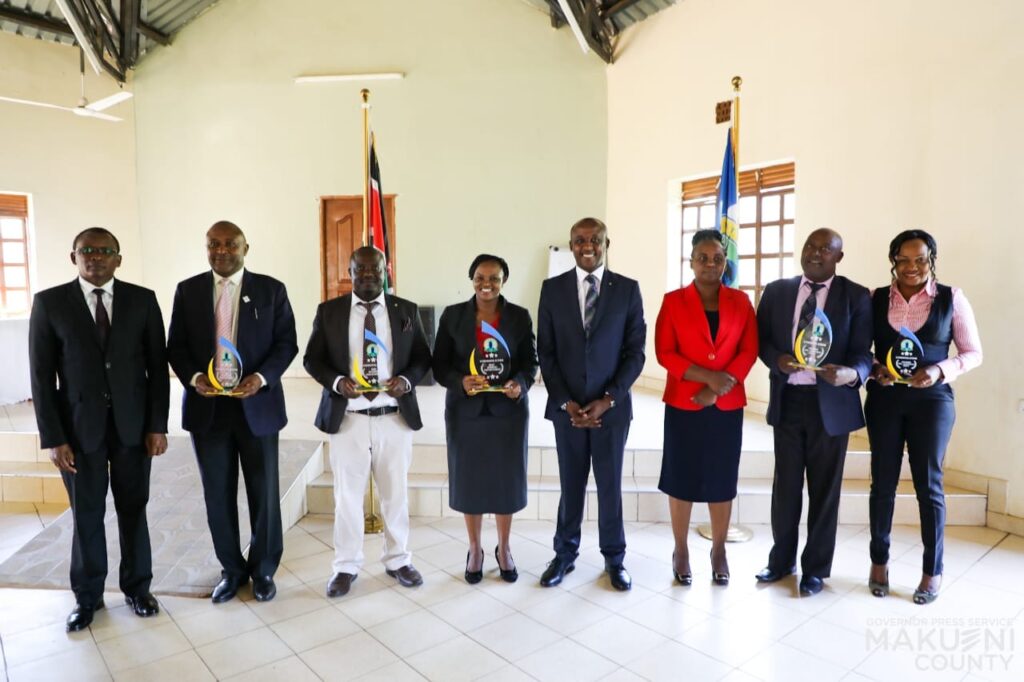
 Mutula told his staff that servant leadership was an important virtue that they needed to cultivate and asked them to be their own supervisors and report to work consistently.
Mutula told his staff that servant leadership was an important virtue that they needed to cultivate and asked them to be their own supervisors and report to work consistently.

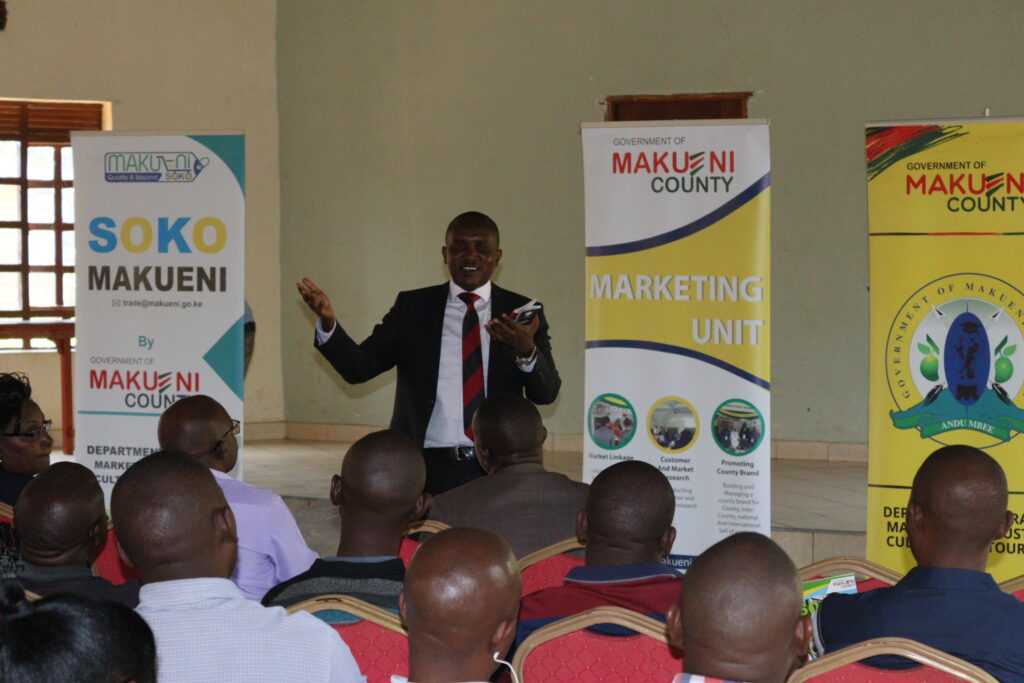
 During the training sessions, participants were introduced to the various features and functionalities of the E-Portal platform, including user registration, account management, and how to access and utilize the available resources and services.
During the training sessions, participants were introduced to the various features and functionalities of the E-Portal platform, including user registration, account management, and how to access and utilize the available resources and services.


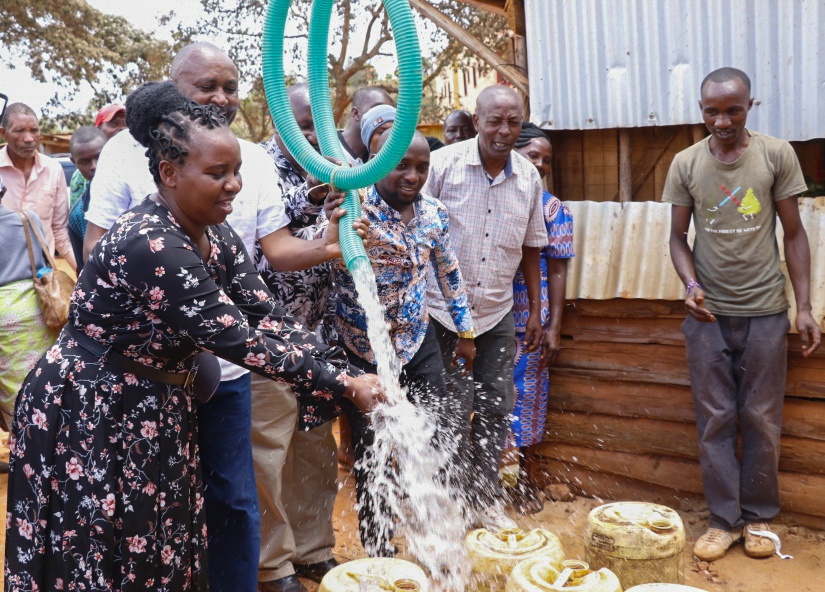


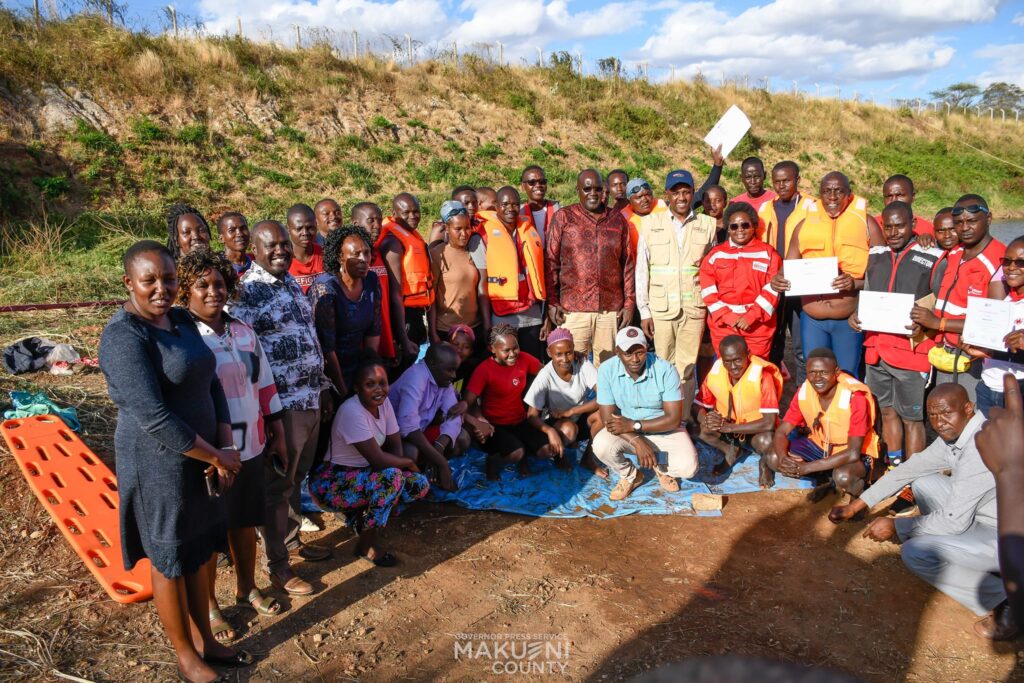



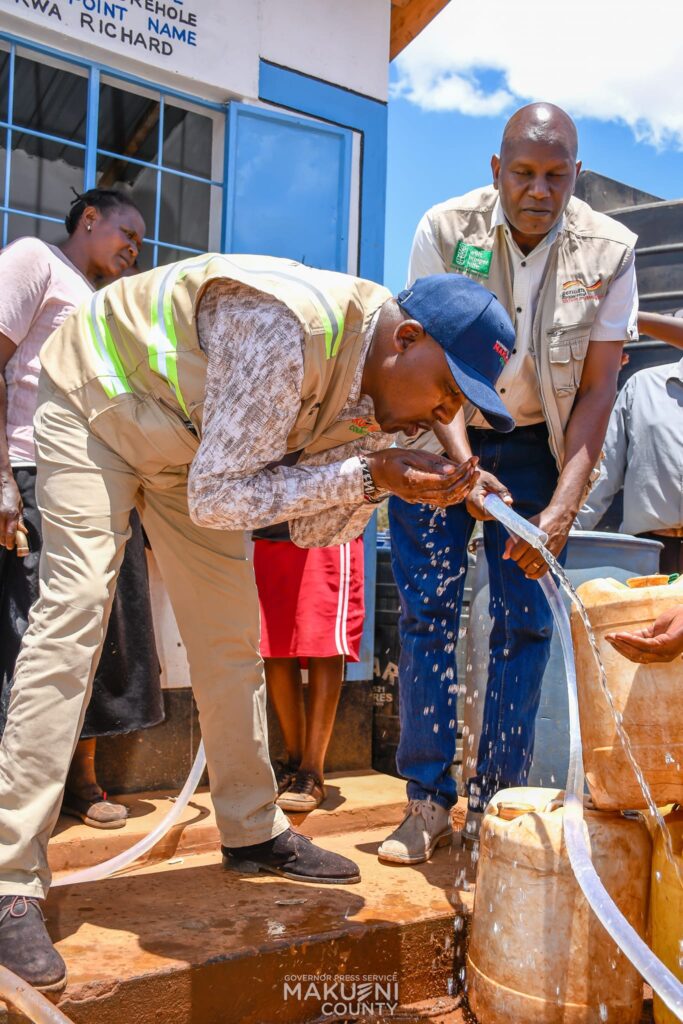


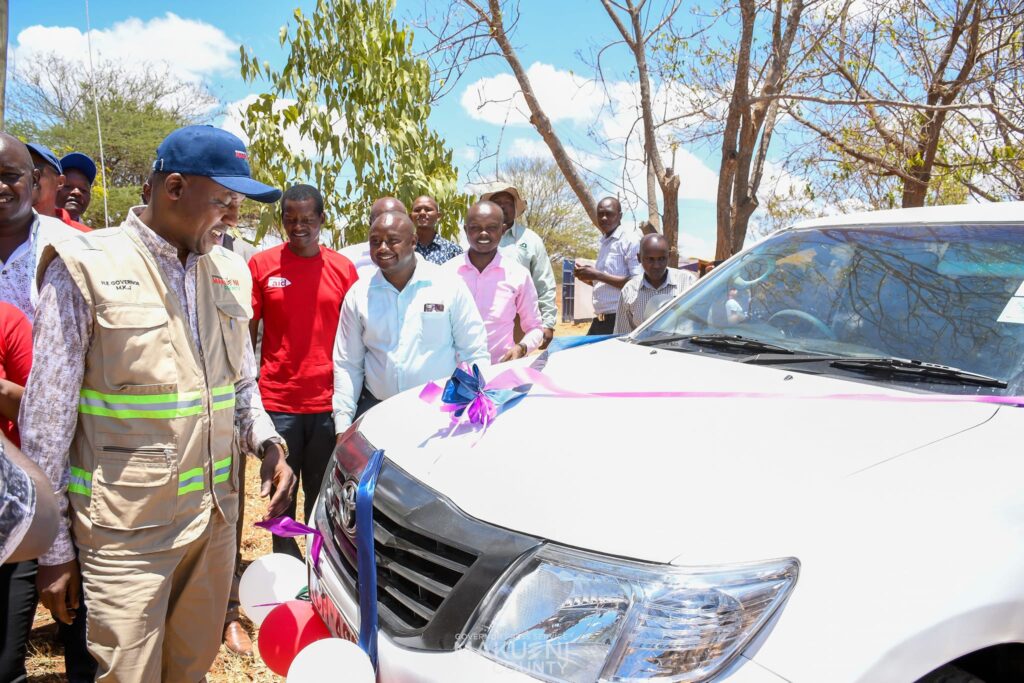




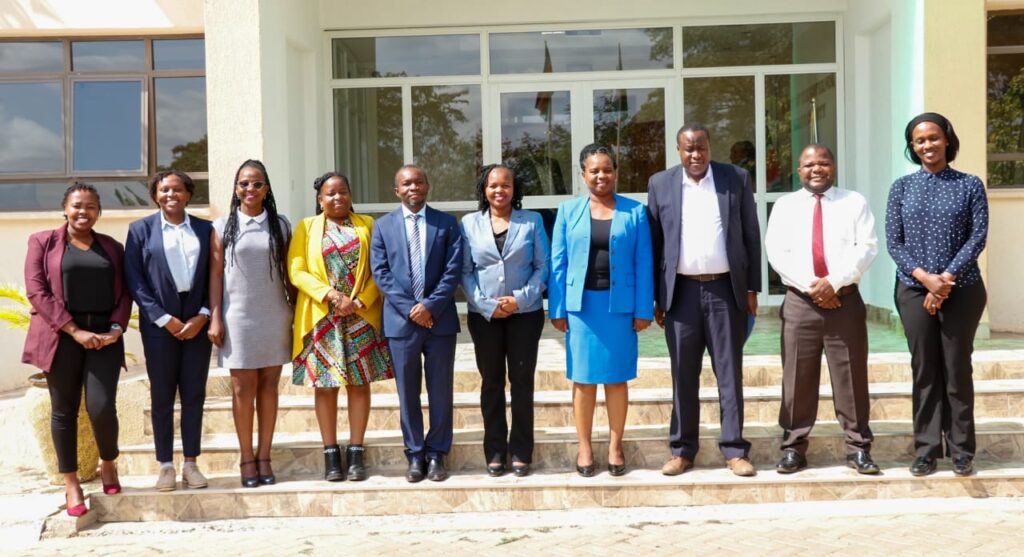
 It underscored the need for appropriate revenue allocation towards maternal, newborn, and child health, revealing opportunities for significant improvements.
It underscored the need for appropriate revenue allocation towards maternal, newborn, and child health, revealing opportunities for significant improvements.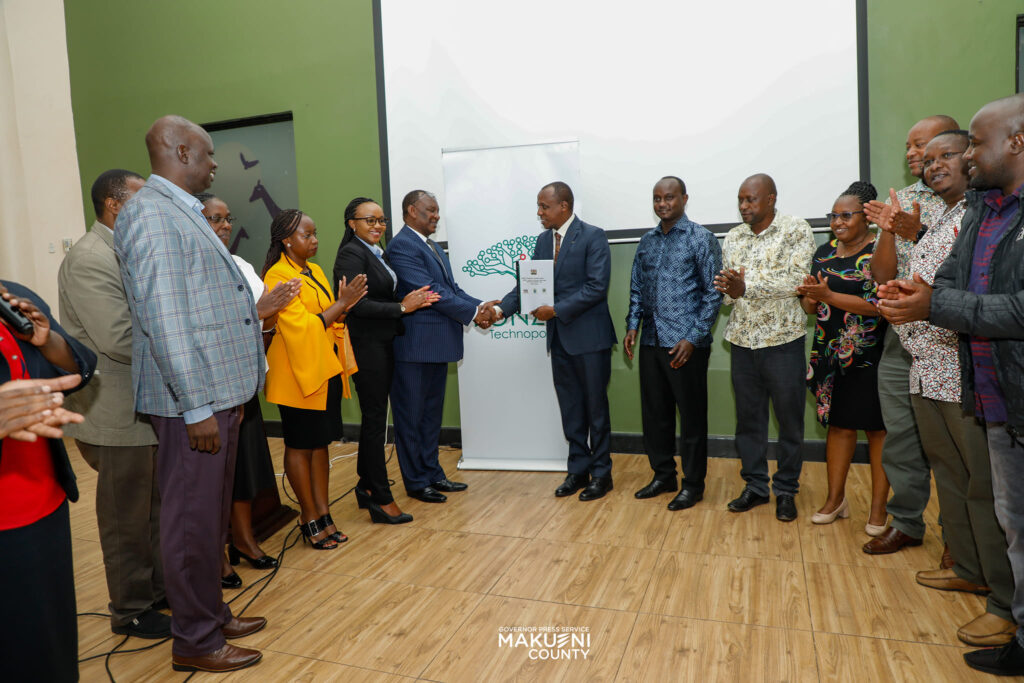
 Thereafter, the county governments will take the plan through approval process in the Cabinets and County Assemblies before sign-off. The approved plans will be adopted by the governors and the plans will be filed with the County Governments and the National Government.
Thereafter, the county governments will take the plan through approval process in the Cabinets and County Assemblies before sign-off. The approved plans will be adopted by the governors and the plans will be filed with the County Governments and the National Government. Other leaders present include: Douglas Mbilu (speaker-Makueni County Assembly), various MCAs drawn from Makueni Machakos, and Kajiado lands committees.
Other leaders present include: Douglas Mbilu (speaker-Makueni County Assembly), various MCAs drawn from Makueni Machakos, and Kajiado lands committees.